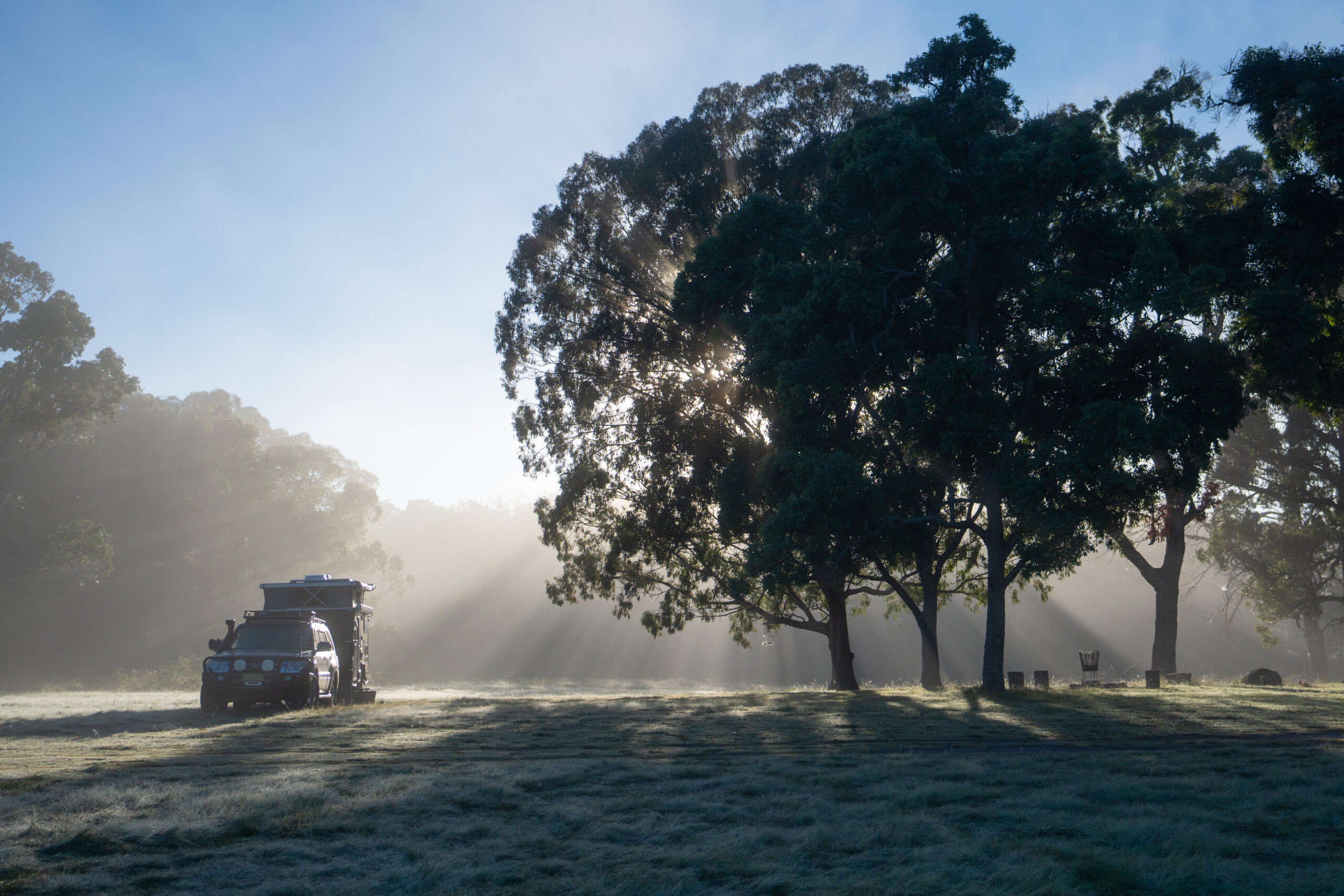Caravanning offers the unique opportunity to immerse yourself in nature, discover breathtaking destinations, and forge lasting memories with friends and family. As our collective awareness of environmental issues continues to grow, it becomes increasingly important to ensure that our travel experiences are sustainable and respectful of the natural world. In this blog, we’ll delve into various practical strategies and tips to help you embrace eco-friendly caravanning, allowing you to preserve the environment and enrich your connection to the great outdoors.
Let’s embark on a journey to create a greener, more responsible caravanning experience together.
Invest in solar panels
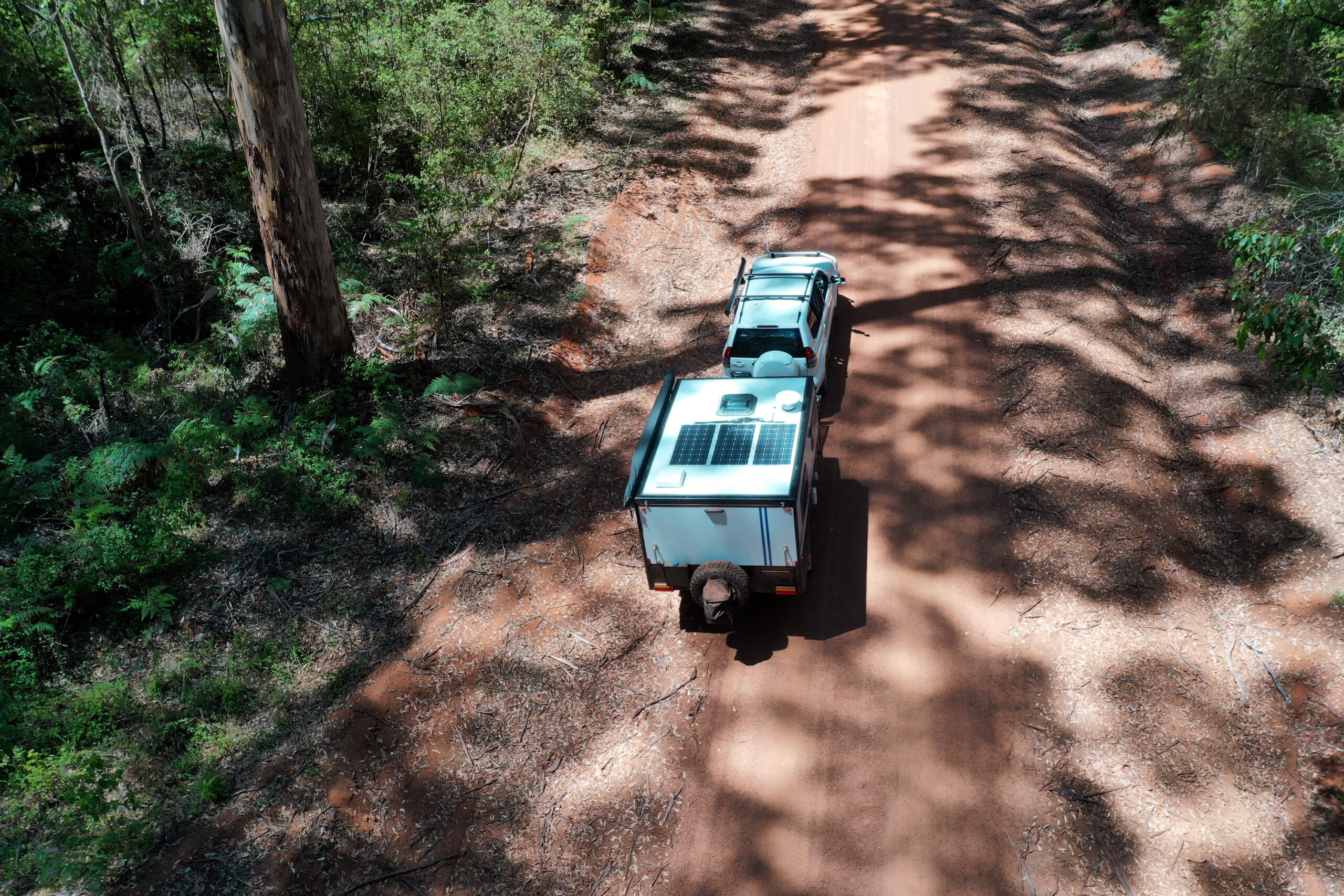
Harness the power of the sun by installing solar panels on your caravan. Solar energy is a clean, renewable resource that helps reduce your reliance on non-renewable energy sources. By choosing the right solar panel system for your specific needs, you can generate enough electricity to power your lights and appliances and even charge your batteries, making your caravan more self-sufficient and eco-friendly.
To get started, research different types of solar panels, including monocrystalline, polycrystalline, and thin-film panels, each with its own advantages and drawbacks. Consider factors such as the size of your caravan’s roof, energy consumption, and budget when selecting the appropriate solar panel system. Remember that investing in a high-quality, efficient system will yield long-term benefits and contribute significantly to your sustainable caravanning goals.
Additionally, you can further optimise your solar energy system by incorporating a solar charge controller, which regulates the voltage and current coming from the solar panels to the batteries, preventing overcharging and maximising battery life. Combining solar panels with energy-efficient appliances and smart energy usage can significantly reduce your environmental footprint while enjoying the freedom of off-grid caravanning.
Choose energy- efficient appliances
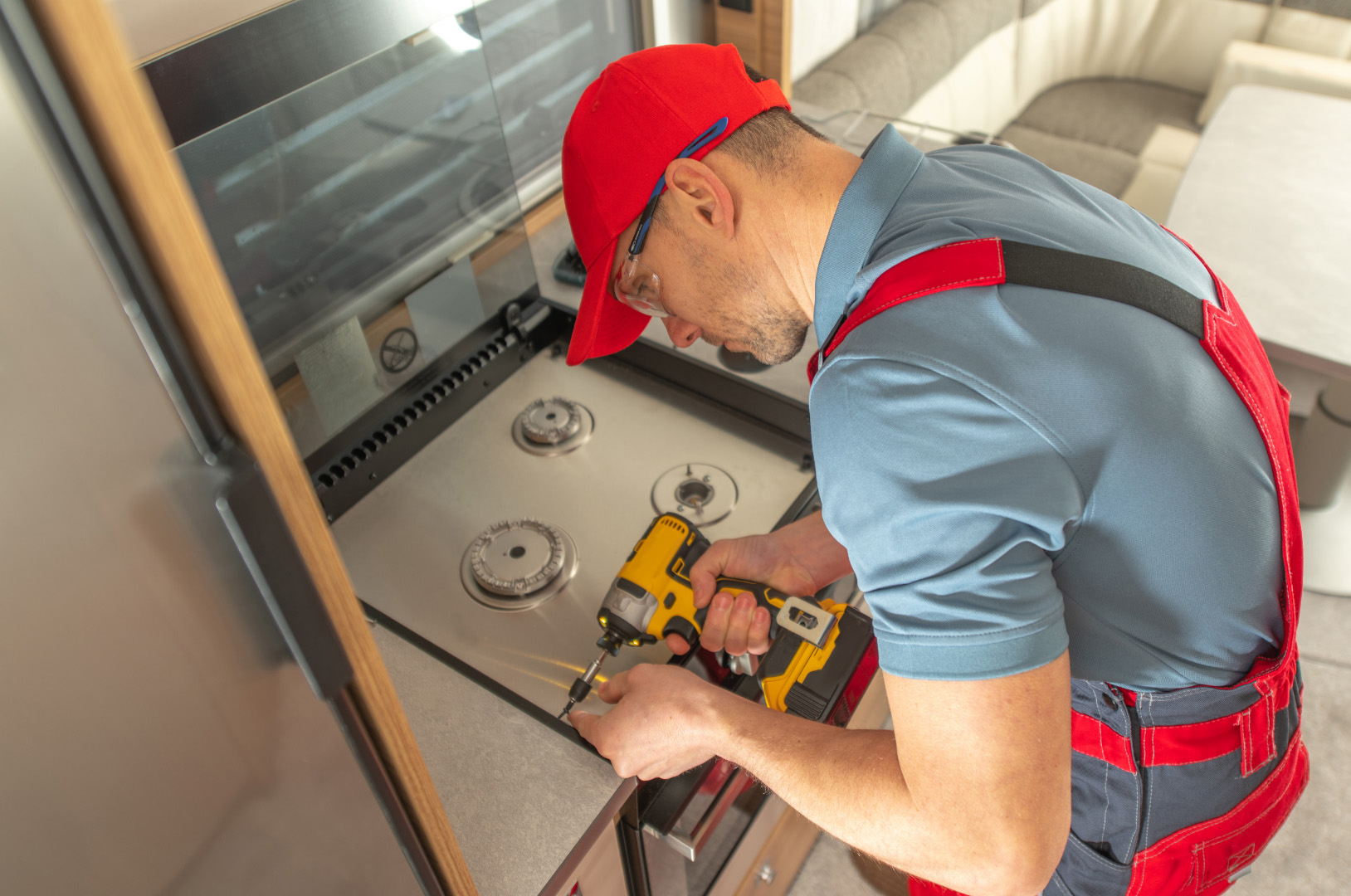
Opt for energy-efficient appliances to minimise your power consumption and lower your carbon footprint when outfitting your caravan. These appliances, designed to use less energy while providing the same functionality, are a great way to make your caravan more eco-friendly.
LED lights, for example, consume up to 90% less energy than traditional incandescent bulbs, and they last much longer. Swapping out old bulbs for LED alternatives is a simple yet effective way to increase energy efficiency in your caravan.
For refrigeration, consider investing in a low-energy or 12V compressor fridge. These models consume less power than traditional gas or absorption fridges, which helps preserve your battery life and reduces your environmental impact. Look for appliances with the ENERGY STAR label, which indicates that they meet strict energy efficiency guidelines set by the government.
Energy-saving cooking equipment is another area to consider. Consider replacing your gas stove with an Induction cooktop, an energy-efficient alternative, as they heat up quickly and only use energy when a suitable pot or pan is placed on the cooktop.
Finally, remember that simply being mindful of your energy consumption can have a significant impact. Turn off appliances and lights when not in use, and consider using natural ventilation and shade to regulate your caravan’s temperature instead of relying on air conditioning. Combining energy-efficient appliances with conscious energy usage can make your caravan experience more sustainable and enjoyable.
Manage waste responsibly
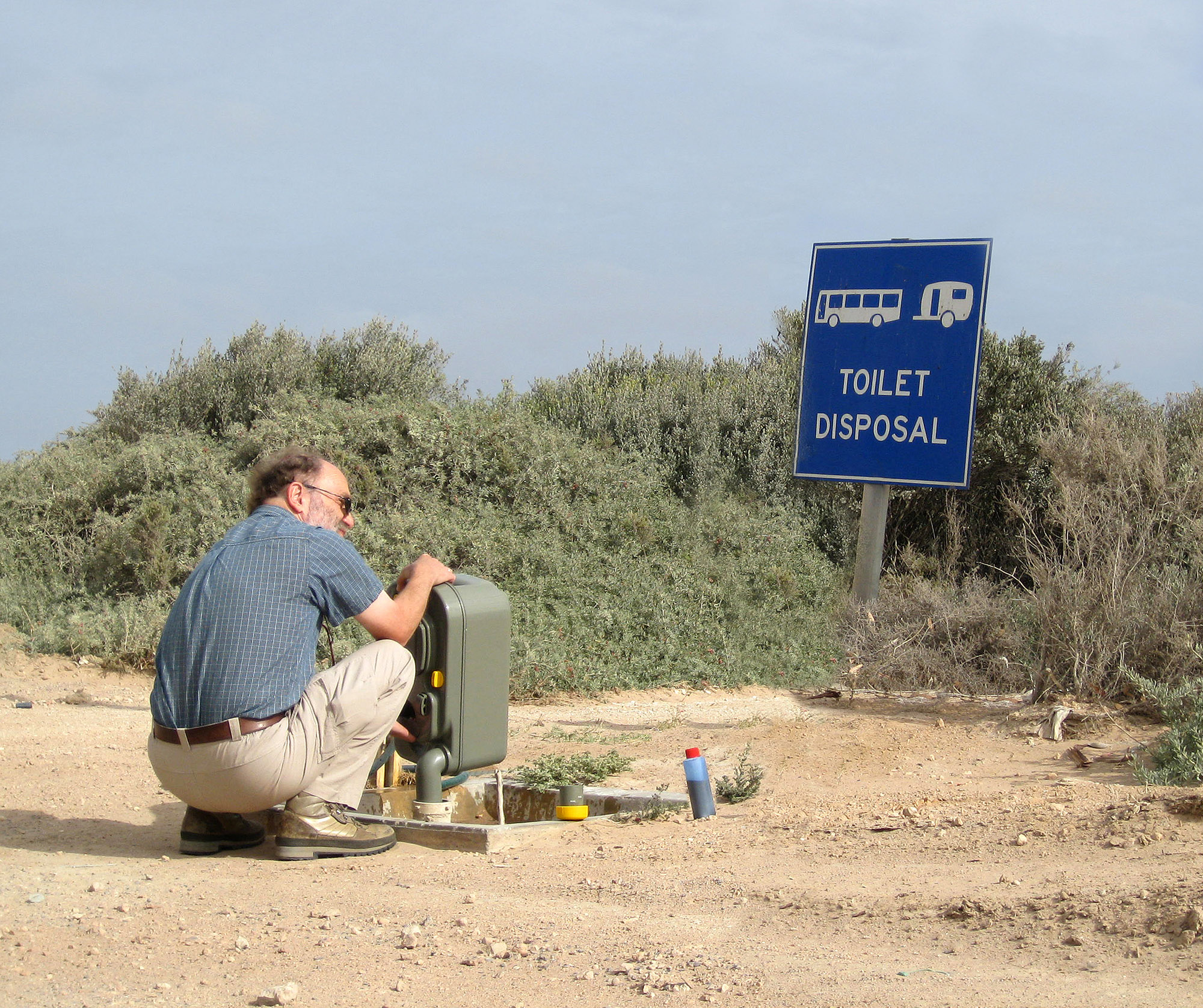
Proper waste management is essential to minimise environmental impact during caravanning. Being mindful of the waste you generate and taking steps to reduce, reuse, and recycle can significantly contribute to a more sustainable experience.Start by reducing your reliance on single-use plastics. Carry reusable bags, containers, and cutlery to minimise waste when shopping, cooking, and dining. Opt for refillable toiletry bottles and eco-friendly cleaning products to further reduce plastic waste. By choosing items with minimal packaging, you can decrease the amount of waste you generate in the first place.
When disposing of your waste, make sure to do so responsibly. Always use designated waste disposal areas or take your waste with you when leaving a campsite. Separate recyclables, such as paper, glass, and plastic, and make use of recycling facilities whenever possible. If you’re staying at a campsite without recycling options, consider taking your recyclables with you to dispose of them properly later.
Composting is another effective waste management strategy for caravanners. Consider setting up a small composting bin for your organic waste, such as fruit and vegetable scraps. This not only helps reduce the amount of waste you produce but also provides valuable nutrients for plants when used as compost.
For toilet waste, use a portable toilet with biodegradable chemicals or opt for a composting toilet. These eco-friendly alternatives break down waste naturally, reducing the need for harsh chemicals and preventing pollution of the environment.
By managing your waste responsibly, you can minimise your environmental impact and contribute to a cleaner, more sustainable, eco-friendly Caravanning experience.
Practice responsible driving
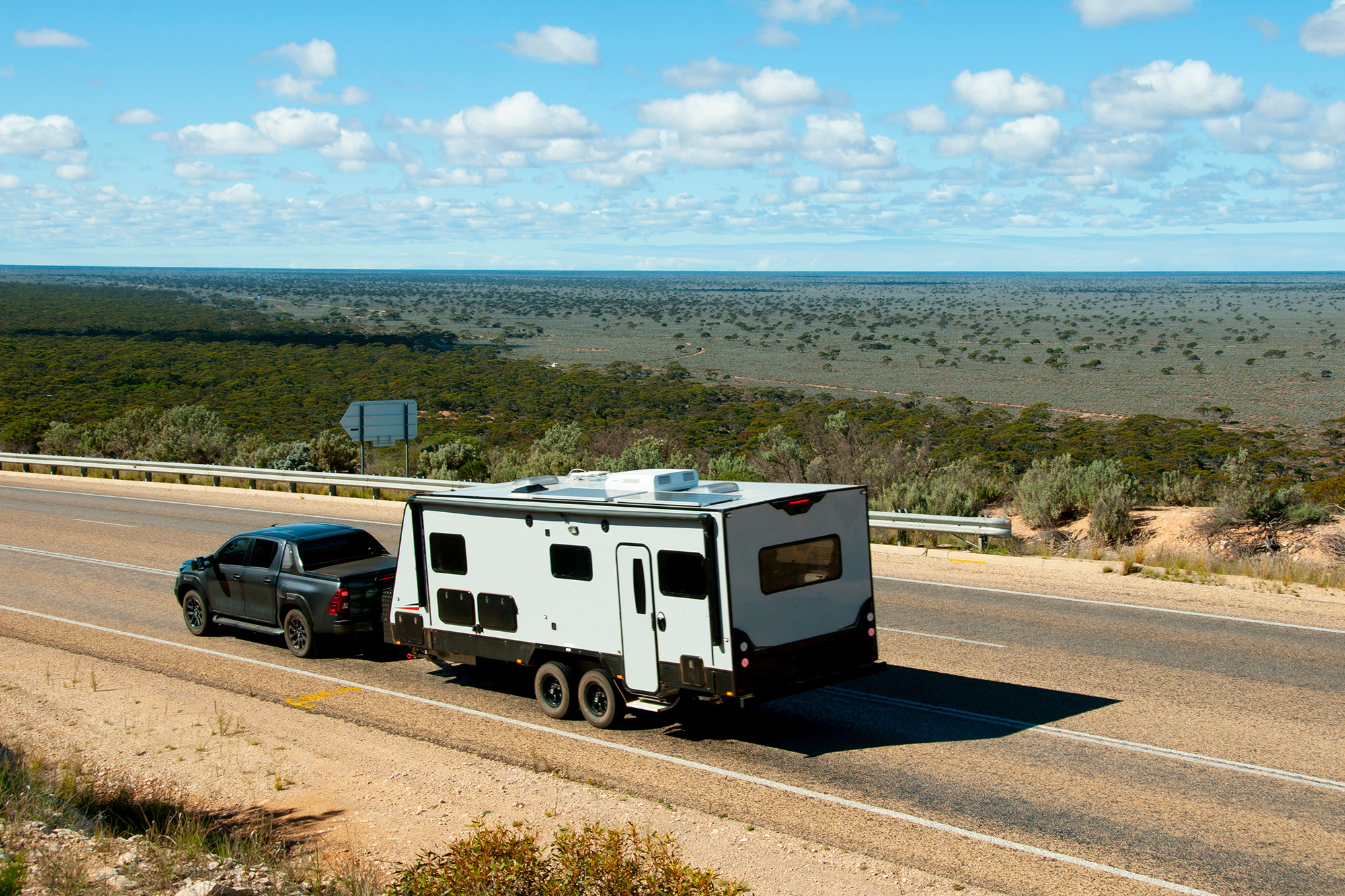
Fuel consumption is a significant contributor to your caravan’s environmental impact. Adopting responsible driving habits, properly maintaining your vehicle, and being mindful of your driving practices can help maximise fuel efficiency, reduce emissions, and save money on fuel costs.
To begin, plan your trips efficiently by mapping out your route and selecting the most direct path to your destination. This minimises unnecessary driving and reduces your overall fuel consumption. When possible, avoid travelling during peak traffic hours, as idling and stop-and-go driving can increase fuel usage. Utilise technology, such as GPS devices and smartphone apps, to optimise your route and avoid traffic congestion.
Regular vehicle maintenance is essential for optimal fuel efficiency. Ensure your engine is tuned correctly, change the oil and air filters according to the manufacturer’s recommendations, and use fuel-efficient engine oil. Keep your tires properly inflated, as underinflated tires can decrease fuel efficiency by increasing rolling resistance. Regularly inspect and replace worn or damaged parts to ensure your vehicle runs smoothly and efficiently.
When driving, adopt a smooth and steady pace, avoiding harsh acceleration and braking. This improves fuel efficiency and reduces wear and tear on your vehicle. Utilise your vehicle’s cruise control feature if available, as it can help maintain a consistent speed and reduce fuel consumption. Anticipate road conditions, such as hills or curves, and adjust your speed accordingly to maintain momentum and conserve fuel.
When towing your caravan, ensure it is properly balanced and aligned. A well-balanced caravan reduces drag, which in turn improves fuel efficiency. Additionally, consider installing an aerodynamic wind deflector on your towing vehicle to reduce air resistance further. Keep the caravan’s exterior clean and free of debris, as a dirty surface can also increase drag and affect fuel efficiency.
Finally, consider joining a caravanning group or club to share tips and experiences with like-minded individuals. This can provide valuable insights on sustainable caravanning practices and foster a sense of community among environmentally-conscious caravanners. Participate in online forums or attend local events to stay updated on the latest trends and innovations in eco-friendly caravanning.
With a little effort and awareness, it’s possible to reduce your environmental impact while caravanning. By adopting these eco-friendly practices, you’ll not only contribute to preserving the environment but also enhance your overall caravanning experience. So, gear up for your next sustainable adventure and check out Harvest Inn Hosts!
Happy travels!

